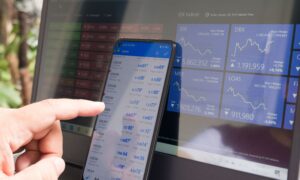Overview
Online forex trading and the fluctuating exchange rates of one currency to another have been critical features of world trading for centuries. In this article, we’ll be delving into the intricate but fascinating inner workings of the forex market and what functions it serves.
The foreign exchange market or forex market has a long and storied history dating back to the early days of international trade. Though its exact origin story remains a mystery, it is believed that the first forex market emerged in ancient Babylon. Here, traders exchange currencies to facilitate trade and commerce between different cultures. Over the centuries, the forex market has grown in size and scope. Today, it is the world’s largest financial market, with an average daily turnover of over $6 trillion. This immense size and liquidity make it an attractive destination for businesses and investors.
The forex market is also highly influential, playing a critical role in setting global interest rates and currency values. This influence is mainly due to a large amount of daily trading in the forex market. With so much money constantly flowing in and out of the market, even small changes can significantly impact global currency values.
Functions of the Forex Market
The foreign exchange market is responsible for allocating resources through the price signals it provides. It influences capital distribution and trade between countries by allowing currency conversion. The fx market also acts as a platform for hedging risks associated with foreign exchange.
- Price Discovery: The forex market is a decentralized market where all the major currencies are traded, and the buyers and sellers determine their prices in the markets.
- Liquidity: As a decentralized market, it provides liquidity to allow investors to move large amounts of currency quickly and efficiently without experiencing too much volatility in price.
- Hedging: A key benefit offered by participating in the forex market is that it serves as an avenue for hedging against foreign exchange risks. This allows traders to protect themselves from potential losses caused by an adverse movement in exchange rates.
- Risk Management: The forex market allows for the management of risk associated with trading in international currencies through stop and limit orders and hedging strategies such as options and futures contracts.
- Regulation: The forex market benefits from being regulated by central banks in major countries, which helps ensure that participants adhere to fair trading practices and don’t engage in fraudulent activities.
Foreign Exchange Price Movements
The forex market is the world’s largest financial market. It includes all of the world’s most traded currencies and is where they are traded. Its function is to facilitate international commerce and investment by enabling firms to convert one currency into another.
The foreign exchange market is a worldwide, decentralized marketplace for the trading of currencies. This indicates that it is not governed by a centralized authority. In contrast, it is a global network of banks, brokers, and traders that exchange currencies with one another.
Monday through Friday, the foreign exchange trading market is open all day and night. As long as there are willing buyers and sellers on the market, trade can happen because there are always two prices for every currency: one for buying and one for selling.
Online forex trading is preferable because of the liquid nature of the Fx market. It means that it has a high degree of liquidity, which means that trades happen quickly and at low costs.
The foreign exchange market influences many other markets, such as bond markets, stock markets, and commodity markets. It is because changes in currency values can have an impact on these different markets. For example, a rise in the US dollar value may lead to a fall in the value of gold or oil.
Types of Markets in the Forex
There are four major types of markets in the forex market:
Spot Market: This is where currency pairs are bought and sold according to the current price. Most transactions in the forex market occur in the spot market.
Forwards Market: Two parties enter into contracts to purchase or sell a currency pair at a predetermined price for delivery on a future date. These contracts can be for any time but are commonly used for longer-term hedging purposes.
Futures Market: Futures contracts are similar to forward contracts, except they are standardized and traded on exchanges. Futures contracts are often used by speculators betting on the direction of a currency pairs movements.
Options Market: Currency options give their holders the right, but not necessarily the obligation, to buy or sell a specified amount of a currency pair at a set price on or before a specific date. Investors typically use options as part of a hedging strategy.
Take Away
Forex, or the foreign exchange market, is one of the most exciting, fast-paced markets in the financial world. Though often overshadowed by its more well-known cousin, the stock market, forex trading has a unique set of advantages and characteristics that make it a viable option for those looking to profit in the financial markets.































